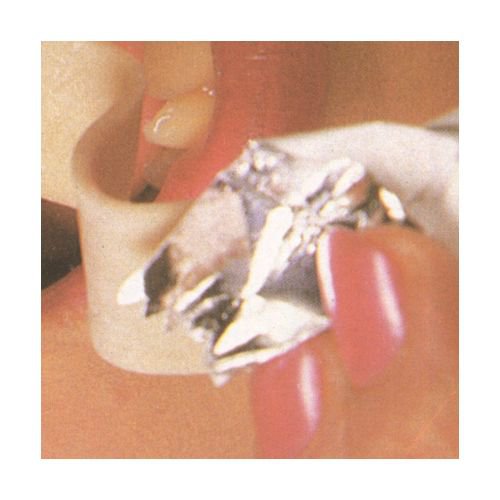Mermaidens - Single Review: You Maintain The Stain
 The latest release from Wellington trio Mermaidens is a straight up middle finger to the powers that control the world and throws away the mainstream formula of verse/chorus patterns, instead, forming a self-righteous maelstrom of sonic environments.
The latest release from Wellington trio Mermaidens is a straight up middle finger to the powers that control the world and throws away the mainstream formula of verse/chorus patterns, instead, forming a self-righteous maelstrom of sonic environments.
With no warning given, You Maintain The Stain gets straight into cold, apathetic vocals alongside a pluggy bassline, until the guitar jumps in with an uncomfortable level of discord that sows the seeds of uneasiness in the pit of your stomach as if every instrument is performing a different song.
Moving between indie rock and dark sludge rock, there is a sense of inequality, heightened by the final act of the track which as almost a track on its own. Undistorted with some light reverb, You Maintain The Stain, ends with a more restrained and sedated melody.
Disruptive and in-your-face, You Maintain The Stain is a rebellion against conformity and power.
About Mermaidens

Together, childhood friends Gussie Larkin (guitar/co-lead vocals), Lily West (bass/co-lead vocals) and Abe Hollingsworth (drums) form a powerful trinity of unwavering creativity and relentless work ethic. Their time together as Mermaidens has been a fruitful one; a timeline consisting of three critically acclaimed albums, releasing music on the iconic indie label Flying Nun Records, and a wide range of live supports that include Sleater Kinney, Death Cab for Cutie, Lorde, Mac DeMarco and The Veils.
The band kicked 2021 off with a bang, announcing a nationwide tour and releasing the slow-burning anthem Soft Energy – the video for which was exclusively premiered by Ensemble magazine. The single and tour come off the back of a 12-month period that saw the band host their first ever Mermgrown festival (to a sold out crowd, no less) and gain a nomination for Best Alternative Artist at the Aotearoa Music Awards. In addition to this, West took home the Aotearoa Music Award for Best Album Art (Look Me In The Eyes).
Visit the muzic.net.nz Profile for Mermaidens
Releases
Other Reviews By butch181
04 Dec 2019 // by butch181
This latest single from Lola Sola, Tripping, is pure simplicity; simple enough to allow nothing to draw your attention away from the vocals. With very little instrumentation beyond a guitar (which doubles as the tracks percussive element), there is nothing complicated about it, and it creates a slow and weary ambience.
Read More...
 Rubine - Album Review: Secret Danger
Rubine - Album Review: Secret Danger
04 Nov 2019 // by butch181
Rubine hail from North Island’s Hamilton and Tauranga, which is ideal placement, as some New Zealand’s best classic rock sounds tend to originate from the Waikato/Bay of Plenty regions. The five-piece consist of Tana Tapri on lead vocals, Afzer Zameer on the drums, Dennis Ben on guitar, and Keith McGlade and Stefan Doll on the bass and guitar respectively, as well backing vocals.
Read More...
 Gig Review: Sevendust w/ City of Souls @ Powerstation, Auckland - 23/04/2019
Gig Review: Sevendust w/ City of Souls @ Powerstation, Auckland - 23/04/2019
24 Apr 2019 // by butch181
A decidedly reserved Tuesday night in Auckland and people were quietly piling into the Powerstation and grabbing some drinks at the bar. The upper balcony area was closed, so the fans were amassing downstairs around the inner perimeter of the venue.
Read More...
 Sonic Altar - Album Review: Under A Dying Sun
Sonic Altar - Album Review: Under A Dying Sun
27 Mar 2019 // by butch181
In this digital age, it’s not often that you get a full length record anymore. Everything is short and sweet just to get content out there before fans forget your band even exists.
Read More...
 Levi Lights On Project - Single Review: Mirror Man
Levi Lights On Project - Single Review: Mirror Man
17 Mar 2019 // by butch181
Levi is a musical amalgamation that would in most cases be categorised as folk, thanks to the groups' uncommon mix of instruments consisting of a saxophone, cello, and cajón, and a lack of a drum kit or electric instruments. That being said, Mirror Man has something unique.
Read More...
 The Gemini Effect - Single Review: Little Mouse
The Gemini Effect - Single Review: Little Mouse
17 Mar 2019 // by butch181
Little Mouse is the first single from Bad Alien, the upcoming sophomore album of three-piece alt-rock act The Gemini Effect. With some nice consistent snare work, the track jumps right off the bat with a great organic sense of rhythm that has you bobbing your head and tapping your foot along with the beat, accentuated by some gritty power chords.
Read More...
 Paper Cranes - Album Review: Voices
Paper Cranes - Album Review: Voices
19 Dec 2018 // by butch181
Due for release January 18, 2019, Voices is the second full-length album from Indie Folk duo Paper Cranes. While comprised of ten tracks, the album has a short overall runtime of just over 35 minutes.
Read More...
 This Pale Fire - Single Review: Float Out
This Pale Fire - Single Review: Float Out
17 Dec 2018 // by butch181
Float Out is about the process of letting things go, moving forward, learning from your past experiences, growing as a result. As such, the track has an intrinsically emotional weight to it.
Read More...
Most Viewed Artists
Latest Galleries
NZ Top 10 Singles
- BIRDS OF A FEATHER
Billie Eilish - NOT LIKE US
Kendrick Lamar - MILLION DOLLAR BABY
Tommy Richman - A BAR SONG (TIPSY)
Shaboozey - PLEASE PLEASE PLEASE
Sabrina Carpenter - ESPRESSO
Sabrina Carpenter - LOSE CONTROL
Teddy Swims - TOO SWEET
Hozier - GOOD LUCK, BABE!
Chappell Roan - HOUDINI
Eminem














 Report A Problem
Report A Problem

